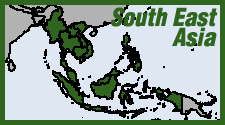 Thailand’s medical marijuana program, after a slow and cautious start, is about to embark on commercial cultivation following cabinet approval of a proposal from the Health Ministry. Unique among such programs worldwide, the Thai framework is crafted to balance the interests of the pharmaceutical industry and the country's traditional herbal medicine practitioners.
Thailand’s medical marijuana program, after a slow and cautious start, is about to embark on commercial cultivation following cabinet approval of a proposal from the Health Ministry. Unique among such programs worldwide, the Thai framework is crafted to balance the interests of the pharmaceutical industry and the country's traditional herbal medicine practitioners.
Things have moved slowly since Thailand's parliament voted to approve a medical marijuana program in December 2018—which is hardly surprising, given that Southeast Asia has some of the world's most draconian cannabis laws. But the Thai cabinet on Aug. 4 signed off on a proposal to finally allow commercial cultivation, including for export.
The proposal, submitted by the Public Health Ministry, is in the form of a package of amendments to the country's harsh Narcotics Drugs Act. If it clears parliament, which seems likely, it could mean the rapid emergence of a new industry in Thailand.
"The law will promote the pharmaceutical industry and increase competitiveness, which will be important for Thailand in becoming a leader in medical cannabis," Public Health Minister Anutin Charnvirakul told reporters.
Thailand's cannabis contradiction
Thailand faces strange contradictions where cannabis is concerned. The country was ruled by a military junta for years after a 2014 coup d'etat, with powers curtailed for the country's parliament, known as the Legislative Assembly. New elections in June 2019 seem to have mostly been a formality, with junta leader Prayuth Chan-ocha becoming prime minister. The army and King Maha Vajiralongkorn still have broad emergency powers, and this extends to drug enforcement. Police in Thailand are actually empowered to order spot urine tests of anyone they stop who is suspected of cannabis use—motorists or pedestrians. A positive test is treated as possession.
Yet cannabis has deep roots in Thailand's culture. The country has a centuries-long tradition of cannabis use in folk medicine, and it is home to rare and highly prized sativa landraces.
Thailand is now moving to close this contradiction. Last September, the largest legal cannabis crop in Southeast Asia was planted in a greenhouse complex at Maejo University. In northern Chiang Mai province—traditionally home to both widespread cannabis and opium cultivation—the university is Thailand's oldest and most respected agricultural institution. The 12,000 plants are now being used for production of cannabis oil.
Four hospitals around the country are currently piloting treatments with this oil: Khlong Muang Hospital in Nakhon Ratchasima province, Chiang Phin Hospital in Udon Thani, Ban Na Yao Nuea Hospital in Sakon Nakhon, and Ban Na Pak Khow hospital in Phatthalung. All but the last, in the south, are in Thailand's northeast highlands, a region known as Isan, where the tradition of cannabis use and cultivation is strongest.
Earlier last year, Rangsit University, just outside Bangkok, launched a "Ganja Studies Department," and attendant research facility, with an eye toward laying the groundwork for a thriving cannabis industry in the country.
But the 2018 law only allowed cultivation and extraction under the close supervision of universities or other state entities. The new legislative package will open things up considerably.
The Public Health Ministry passed the proposal on to the cabinet following public hearings in June, the Bangkok Post reports. Significantly, it also passed muster with the military-controlled Narcotics Control Board. A final hurdle before it goes before the Legislative Assembly will be screening by the prime minister's Council of State.
Role for traditional healers
A unique aspect of the proposal is the role it carves out for traditional medical practitioners and folk healers. Dr. Marut Jirasrattasiri, director-general of the Department of Thai Traditional & Alternative Medicine told reporters that cannabis clinics run by such healers are waiting to go online at some 300 public health centers around the country, and have received 60,000 requests for treatment this year.
Farmers would be able to cultivate to supply these health centers, or under contract to pharmaceutical companies. Traditional healers, who constitute a strong lobby in Thailand, petitioned to be included in the law, and raised concerns about the global industry privatizing what has been a genetic commons for peasant cannabis cultivators in the country for centuries if not millennia. The tension between capitalist enterprises and local control will likely continue under the new expanded program.
The program still emphasizes oils, extracts and tinctures, and permitting use smokeable flower has not been broached.
Nonetheless, cannabis advocates at both ends of the industry-peasantry spectrum are greatly enthused. "This will be another step for our country to become a leader that applies cannabis systematically in the medical field," Paisarn Dunkum, secretary-general of Thaialnd's Food & Drug Administration, predicted to the Bangkok Post.
Cross-post to Cannabis Now







Recent comments
2 weeks 5 days ago
3 weeks 5 days ago
7 weeks 5 days ago
11 weeks 3 days ago
15 weeks 4 days ago
16 weeks 2 days ago
26 weeks 2 days ago
30 weeks 2 days ago
31 weeks 3 days ago
31 weeks 3 days ago